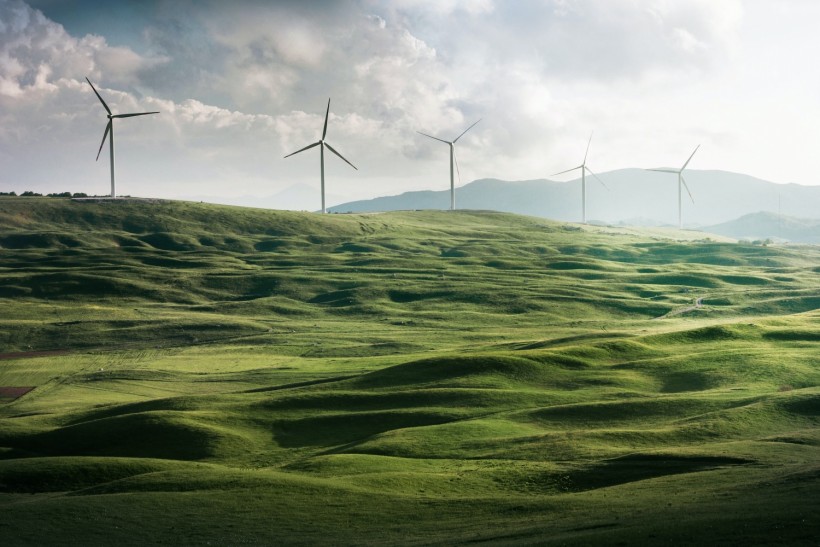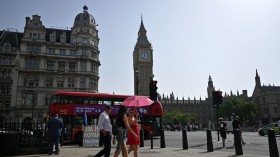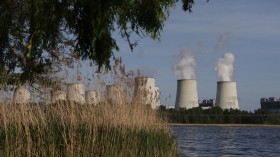Earth's ecosystems hold immense value. For example, they can protect a storm-prone coast with mangroves or store huge amounts of carbon in peatlands. Or they can cover landscapes with life-giving soil. However, it is difficult to measure this value; it is often overlooked - which can have alarming effects on the environment.
UNEP's Become #Generation Restoration reported that half of the world's GDP is dependent upon nature. Each dollar invested in restoration can generate up to $30 in economic benefits.
New tools can now be used to measure the value of nature, as well as its many benefits, and enable governments and other decision-makers alike to take into account Earth's "natural capital" and increase their efforts to restore it.
Pushpam K., UNEP Chief Environmental Economist, said, "Climate change and biodiversity loss are proof that a narrow focus upon conventional economic growth cannot deliver the quality of life for ourselves or future generations." As we move towards sustainability, we need to take into consideration all of the Earth's natural resources.
Long-standing economic development was measured by a country's gross national product (GDP). What is GDP?
GDP or Gross domestic products are a monetary measure that measures the market value for all final goods and/or services produced or sold in a certain period. Because of its subjective and complex nature, this indicator is often re-evaluated before it can be considered reliable.
Experts claim that the lack of attention to environmental degradation in this metric has distorted economic policy and increased investment in unsustainable directions.
Kumar stated, "The critical decisions that are being made now, such as on the transformation of our energy systems, and the saving of biodiversity, need to have a lot better information than GDP."
The failings of GDP
GDP is a measure of nature's most tangible contributions to the economy. It includes supplying markets with timber and fish. However, it doesn't capture nature's "non-market" benefits, such as its spiritual, aesthetic, and recreational value. Essential functions, like the generation of fertile ground, the supply of clean air, water, or natural barriers to disease must not be overlooked.
Kumar also notes that market mechanisms don't always reflect the dangers of erosion of the natural capital.
He stated, "This conceals how foundations of human well-being are weakening even when financial incomes for most people may have risen."
Economists are creating new ways to measure wealth, well-being, and the health of the Earth and people. Governments are now using these metrics more to guide economic development and policy decisions.
New yardsticks for sustainability
UNEP has, for instance, developed the All-Inclusive Wealth Index. Instead of focusing solely on flows of services and goods, the index sums up the social value and production of natural and human resources to indicate whether countries have a sustainable development plan.
The index now covers 140 countries and shows that inclusive wealth increased an average of 1.8% over the 1990-2014 period. This was far less than the 3.4 percent growth rate for GDP.
Kumar states that "the index doesn't just show us we aren't as rich as we think." "It shows how protecting and restoring our environment is as important as developing new industries, encouraging education, improving public health, and creating long-term prosperity."
Natural capital accounting
Countries are also adding environmental statistics into their national accounts to go beyond GDP. For example, the UN-supported System for Environmental-Economic Accounting allows countries to track the use of energy and water resources in their economy and the return flows of emissions and waste.
An Assessment in 2020 indicated that 89 countries have implemented the SEEA already and that 27 other countries plan to join them.
SEEA has added an "ecosystem account" to enhance natural capital accounting to its database. These accounts are used to measure ecosystems' diversity, extent, value, and the services they produce. Once complete, the accounts will reveal how ecosystems work together to support an economy. "This is an important step towards changing the way we view and value Nature," UN Secretary-General Antonio Guterres said at the 2021 launch. "We will no more allow environmental destruction or degradation to be seen as economic progress."
Many countries are currently compiling their ecosystem accounts on an experimental basis. In South Africa, for instance, an experiment with ecosystem accounts revealed that the economic advantages of restoring grasslands affected by erosion and bush invasion clearly outweigh the cost.
Researchers are creating artificial intelligence tools and biophysical models to automatically create ecosystem accounts. This is an important step for countries that have limited data and resources.
This new way of taking nature into account is beginning to have an impact on businesses. The new Taskforce for Nature-related Financial disclosures will provide the metrics necessary to allow the private sector to calculate and manage its ecological footprint.
Source:
https://www.unep.org/news-and-stories/story/beyond-gdp-making-nature-count-shift-sustainability
© 2024 NatureWorldNews.com All rights reserved. Do not reproduce without permission.
* This is a contributed article and this content does not necessarily represent the views of natureworldnews.com






